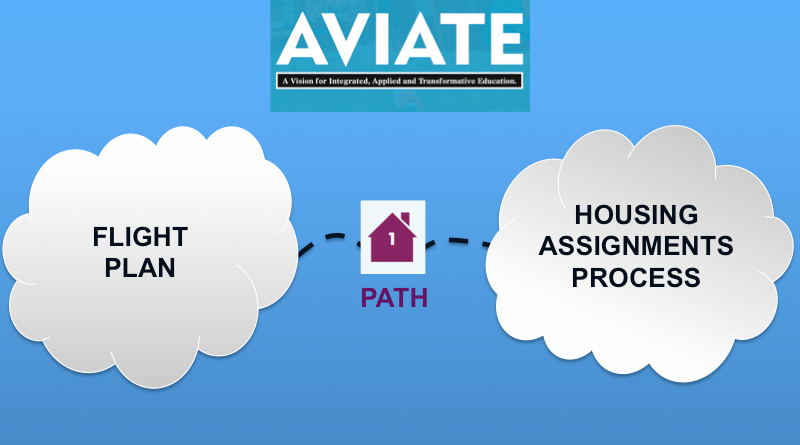Not So Fly: AVIATE is the Antithesis to Education and Involvement
By: Nate Sikora – Staff Writer
The emergence of Aviate as the determinant for student housing has caused uproar within the masses on campus, and most of the criticisms are warranted. For example, recently at the sophomore carnival and Culture Fest in KU field, the line in order to swipe in to get a PATH point extended around the tented area and passed the KU fountain. People waited in line for over thirty minutes for a single PATH point. Were most people there to actually enjoy the event?
No. Rather, the majority of people were there to swipe and leave. What arises from this mentality is the disincentive of learning of the student body outside of class. Aviate opposes education and actual involvement. It is the epitome of the capitalistic principle of pursuing one’s self-interest.
Based on the existence of this new phenomenon, the purpose of this article is to dissect the aspects Aviate and PATH points to expose the pros and cons of the system to come to an obvious verdict: Aviate must be eliminated, if not altered, to suite the student body and not the administration.
First, we must acknowledge the common system prior to Aviate: what existed before? It was a simple and fair system of a random lottery. I am not familiar if any other systems before the lottery existed, but many other schools have housing based on credit hours or other academic attributes that focus on school performance.
Academic performance, on our campus, is now ignored by Housing and Residence Life. Housing has moved away from academics and luck to merely the presence of an individual at an event. One could use the quote that “showing up is half the battle,” but that concept does not apply to this case.
The events that are PATH point eligible are supposed to be for educational development or represent the values of the University and the Marianist tradition. However, students do not attend the events to obtain the substance; they attend only to get the PATH point. PATH points, whose sole purpose is to increase involvement and education, are in fact the antithesis to involvement and education.
How can this be so? PATH points are subjectively chosen by the administration as the basic form of, let us say, “housing currency,” on campus. Consequently, students, influenced by the capitalistic society in which we live, are incentivized to get PATH points. The only incentive is to swipe their ID at events and leave. It is no longer about learning new things or about listening or participating in substantive discussions. Our incentives are misplaced.
Secondly, PATH points put involved students at a disadvantage. PATH point events are typically scheduled at times when club meetings and other extracurricular activities are occurring. Thus, people already involved in other activities miss opportunities to earn PATH points. What type of system is that? Why are active people punished while others with free time get benefits?
A change must be made where club membership allows you to have an outright number of allotted PATH points to compensate for your involvement. This is the only way to make the system fair. Fair is meant that a party does not have a distinct advantage over another, as in the present case today, which is different from equality.
Thirdly, from a psychological standpoint, what type of possible long term behavioral impacts will occur to students from this system? To explain further, ingraining in the subconscious that presence is the only means of success and achievement has the potential to be disastrous in the long run. I understand that such an assertion is a stretch, but could it be completely ruled out as a potential consequence?
First of all, incentivizing attendance and not attentiveness defeats the entire purpose of event gatherings. It could be argued that students that attend events for PATH points are essentially brain dead bodies with no interest in the event’s purpose.
Ignoring the purpose of events is not only rude to potential guests such as speakers for UD’s Speaker Series but also for the hosts of events that put in hours of preparation for people to come swipe their IDs and leave. It perpetuates disrespect and meaninglessness in campus activities. Is that an environment students and faculty want to promote?
The drastic consequences of PATH points formulated above brings me to the crux of my argument – Aviate is the inversion of what it seems to promote. Instead, it promotes mindlessness and presence as superior attributes rather than attentiveness and passion.
In the broad scheme of things, Aviate represents a poor execution by UD’s administration that unfortunately poured money into a failed system. From an economic standpoint, students are basically consumers (customers) to a university, and if the consumers demand a change to a product, should the company respond accordingly to their consumers’ demands?
Economically, yes because failure to respond coincides with a loss of revenue. If universities were perceived as businesses like they are instead of untouchable and un-criticizable institutions of higher learning, then action would be taken on this issue. However, student voices are crushed and swept under the rug. Why? Money. It is realistic to work within the system rather than to advocate for its upheaval. Progress does not occur overnight, and altering systems on campus will require a large amount of passionate and driven students so that administrators will actually listen. Eventually, Aviate must be eliminated and be replaced with the former lottery system. It is the only fair and random system to determine the housing process.

